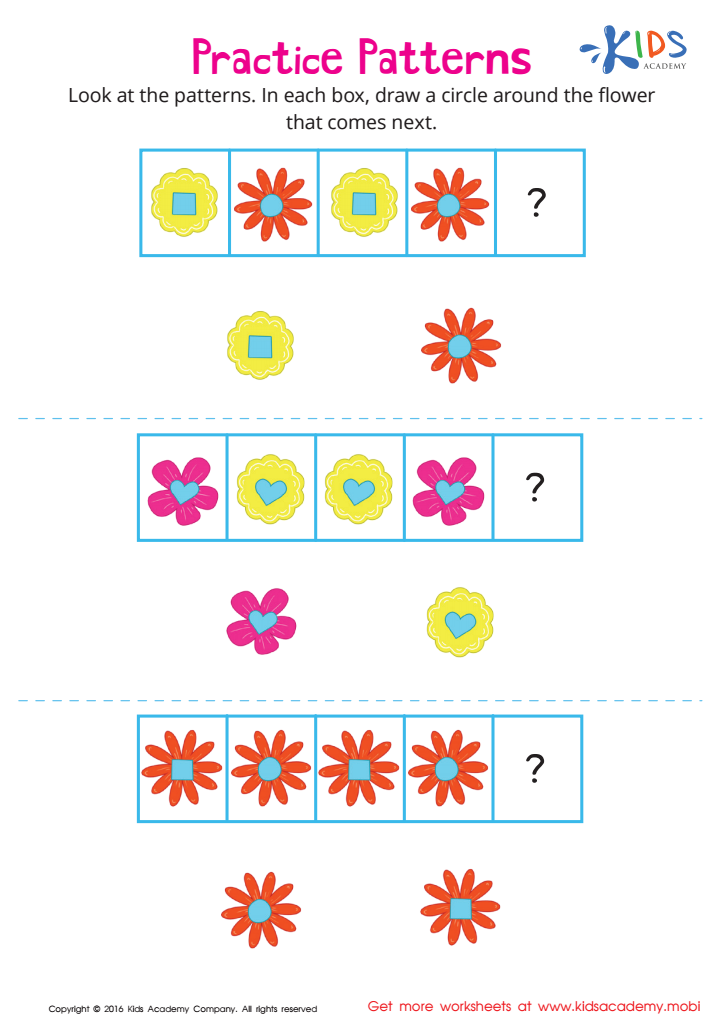Online Patterns Worksheets With Answers
6 filtered results
-
From - To
Answer Keys for Patterns Worksheets
Discover our engaging online patterns worksheets with answers at Kids Academy! Designed for young learners, these interactive worksheets help kids grasp key math concepts through fun pattern recognition activities. The worksheets feature colorful visuals, enhancing children's understanding while making learning enjoyable. With an array of progressively challenging exercises, each worksheet comes with an answer key for easy guidance and self-assessment. Perfect for reinforcing classroom lessons or homeschooling, our comprehensive pattern recognition resources will boost your child’s confidence and numeracy skills. Explore now and watch your child's mathematical abilities flourish with Kids Academy's online patterns worksheets!
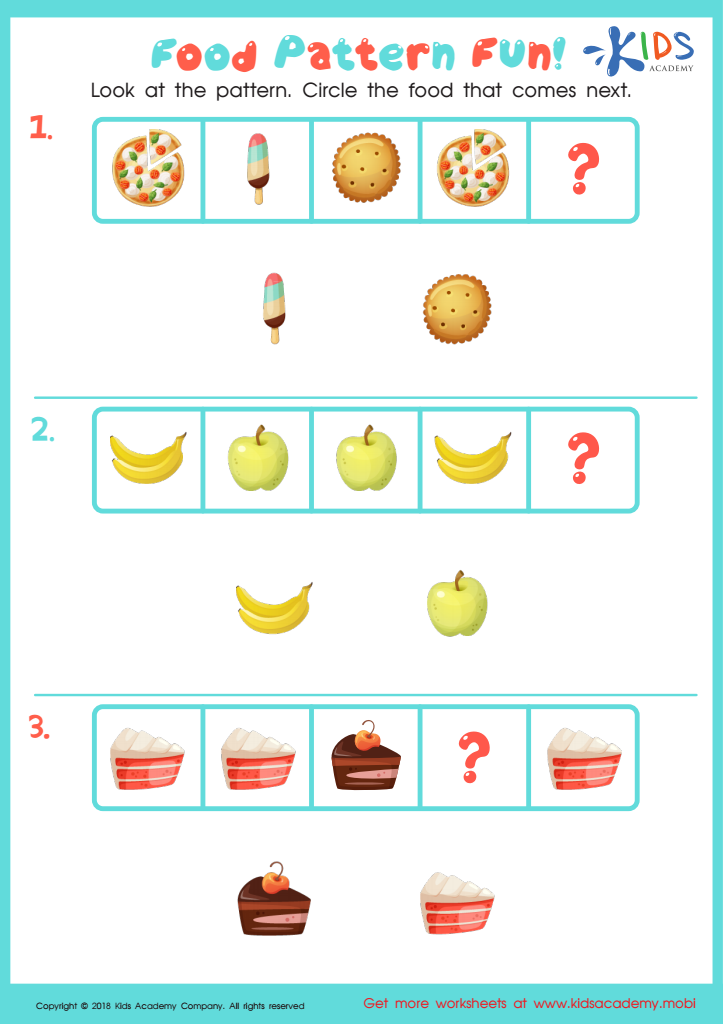

Food Pattern Fun Worksheet
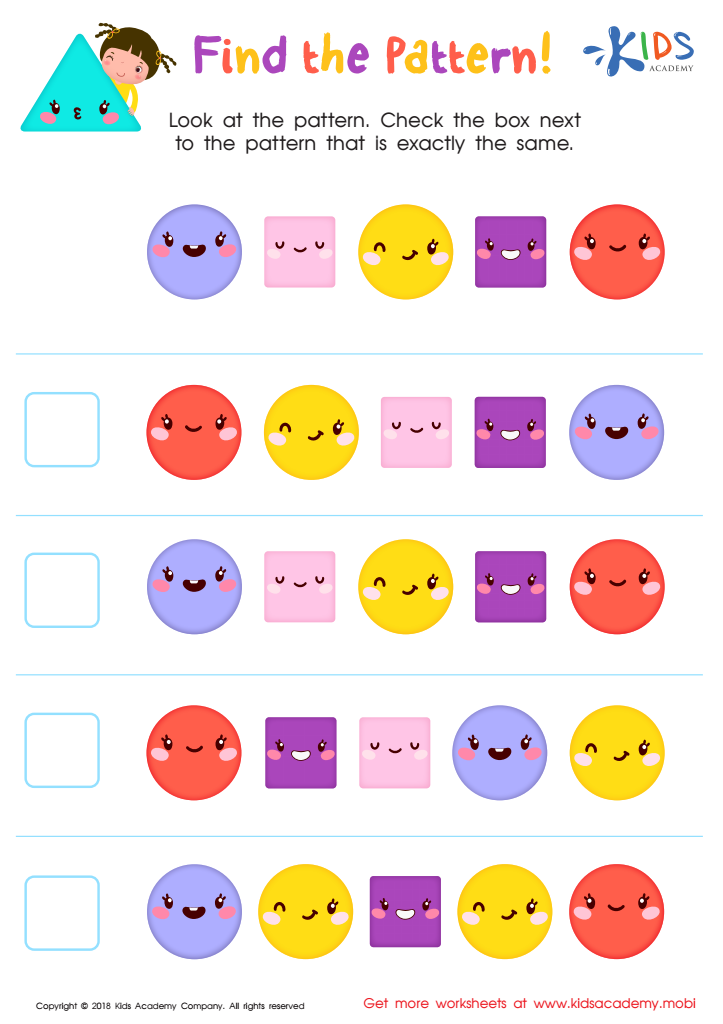

Find the Pattern Worksheet


Make the Same Pattern Worksheet
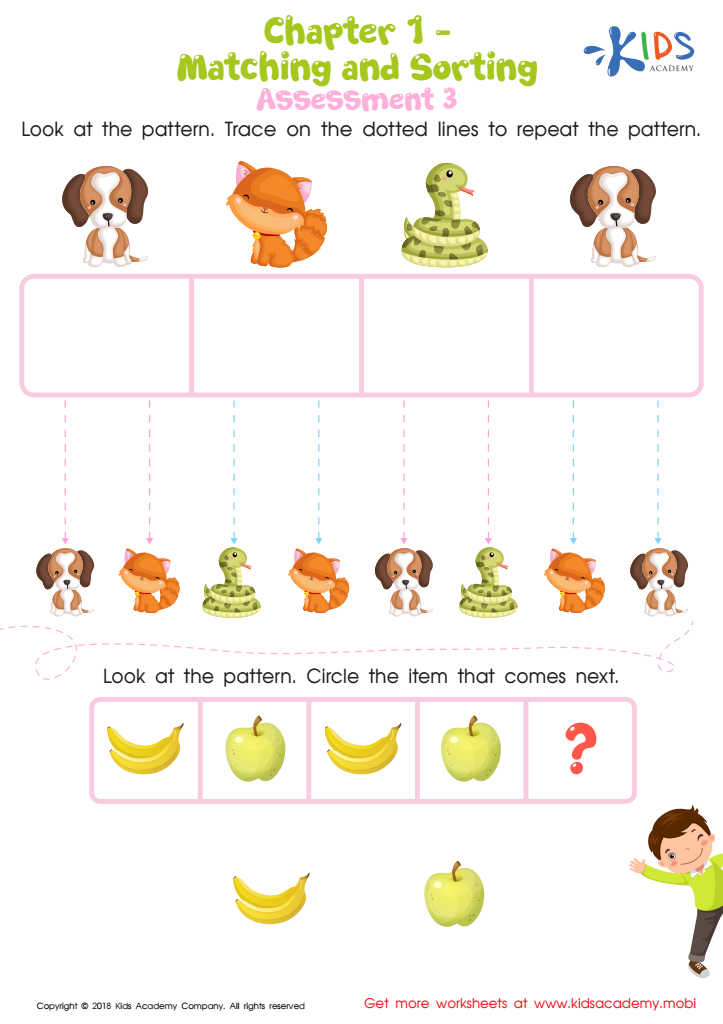

Matching and Sorting for Preschool: Assessment 3 Worksheet
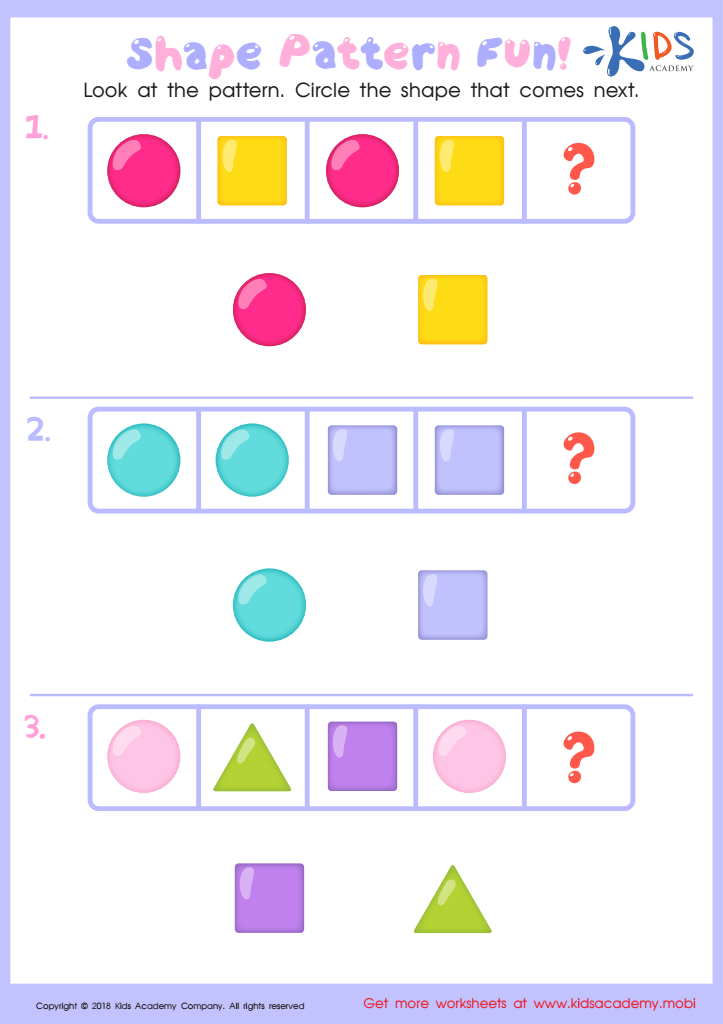

Shape Pattern Fun Worksheet
Parents and teachers should care about patterns because they are a fundamental aspect of learning and cognitive development. Recognizing and understanding patterns help children develop critical thinking skills and mathematical foundations. For instance, when children identify patterns in numbers, shapes, or sequences, they enhance their problem-solving abilities, which lays the groundwork for more advanced mathematical concepts they will encounter later.
Additionally, patterns facilitate better memory retention and recall. For example, rhythmic patterns in language and music can aid in memorizing new vocabulary or concepts, making learning more effective and engaging. Patterns also play a crucial role in understanding the natural and built environment, fostering curiosity and observation skills vital for scientific inquiry.
Furthermore, patterns in behavior and routines provide children with a sense of predictability and security, which is essential for their emotional well-being. Establishing consistent patterns or routines can help children manage their time better, reduce anxiety, and develop self-discipline.
In summary, by encouraging a focus on patterns, parents and teachers support not only the academic growth of children but also their emotional and cognitive development, equipping them with essential skills that are applicable across various life domains.
 Assign to My Students
Assign to My Students

